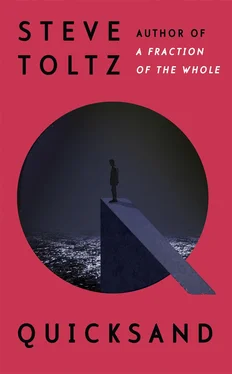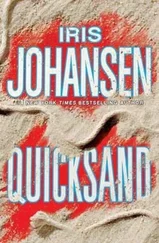My signed copy of Artist Within, Artist Without had become my veritable bible and gave me plenty of conflicting advice, such as: Muses inspire but also violate — innocently, like the kissing bandit; or horrifyingly, like the granny rapist, and: ‘Inspiration of the muses’ is the ‘only following orders’ of the creative act, and: When you’re looking for Ideas just remember: people often die straining on the toilet. It was in this confusion that I decided to take as my subject this three-pronged family of mine that moved to an industrial suburb and into a small apartment with a rusting two-door Celica in the grassy yard and flying cockroaches in the living room and a Juliet balcony haunted by wet crows. Yet as the years passed and I wrote about the sour, stubborn screams of early childhood or the dripping tap of marriage or anything else for that matter — my nation’s catastrophes and blood-orange sunsets; its old-timey genocides and Salvation Army bin fires; the New Australia, how there hadn’t been a stoic among us for fifty years — I knew I still hadn’t found the holy grail, my natural subject.
Moreover, whenever I was in mid-creation, a phrase from Artist Within, Artist Without would eviscerate me; I had repeatedly failed to structure an invented story in a convincing or original manner, and I could not, no matter how I tried, come up with engaging plots, write realistic dialogue or convincing characters, therefore when I decided that the traditional, conventional novel was a contrived and predictable anachronism and I should no longer waste my time with it, Morrell’s work snidely castigated me: An artist’s theory of art is always founded on his shortcomings as an artist, his passion for that theory in direct proportion to the severity of his failures. When I tried my hand at disrupting expectations of linear narrative and wrote one hundred pages of fragmentary scraps, random paragraphs that could be arranged in any order, I came across this quote: Only when one is disappointed with the quality of one’s content does one develop an exaggerated interest in form. I had told myself I was being extraordinarily daring, but Morrell’s book said: Most times people talk of artistic risk, they are referring to commercial risk. Not ‘Will this succeed?’ but ‘Will this be purchased?’ When out of pathetic desperation I attempted a pastiche of my favourite writings, often drifting into outright plagiarism, I found the putdown Only those with no personal stamp do not believe in copyright.
My future lay behind me. I was thirty years old and had been unspooling for more than a decade and was in the perpetual doldrums about my not-for-profit days and nights, envious of Tess’s actor friends who had already abandoned their dreams and ‘grown’ and ‘changed’ while I watched myself metamorphose annually into the same thing I was the year before. To make matters worse, the relentlessness of parenthood — the unending string of sunrises, interminable housework and separate schedules — seemed to be getting the better of us. Maybe that was why, when our paths did cross, and not just when I came home to find I’d been tried in absentia for some domestic crime or another, it was my impression that Tess had started luxuriating a smidgeon in my failures. Maybe I was just hypersensitively overinterpreting clues, but everything suddenly became deeply significant: the night she coerced me to plug my nostrils with Snore Less Nasal Cones; the day I asked her to scratch my back, and she left scars. And I’m pretty sure, though I can’t prove it, that she stole my wedding ring in order to accuse me of losing it. At the same time, Tess’s aura of self-sufficiency strengthened. Her Pilates classes, intended to rid herself of her pillowy post-baby body, turned her into a certified-organic fitness junkie; she weaned herself off shoplifting, made new friends, returned to university. It was like we’d boarded the same train but I’d wound up on an uncoupled carriage, stationary on the tracks. My grip on her was loosening and the more she slipped away, the more I realised I loved her; and the more I loved her, the more she seemed to lose interest in me. On the night of my thirty-first birthday I got so drunk I couldn’t find my own mouth, and tiptoeing into a household of light sleepers, I slipped into the guest bathroom where I often went during dinner for a minute of mute howling. Through the window, a piebald moon cruised the sky. I fished Artist Within, Artist Without from the bin where Tess had thrown it, accusing me of being unnaturally attached to this old teacher with no pedagogical value who lectured about art but had never produced a body of artistic work. I could see her point; Google told me that Morrell had still not followed up on his threat to quit teaching in order to paint, but I was reluctant to relinquish this textbook that I used as a kind of alternative I Ching. I desperately flicked through, looking for a lit path through the darkness. And here I found this: When you begin a work, keep expectations low. Anticipate that you will be like the new groom who unexpectedly returns home from his honeymoon a widow. That advice was a windfall; as always the book seemed to speak directly to my particular psychological impediments, this time my debilitating perfectionism. It inspired me to begin again. One last shot. But what would I write about?
Then, here, this: If stuck, descend to the floor of the abyss and exhume the idiosyncratic horror that made you.
That was it. I would write about Molly’s death — turn my victim impact statement not into a short story, but a novel! But rather than the point of view of the grieving brother, I would get into the head of the murderer, the young cop. And for that I would do research. I’d interview policemen. Or better: I’d fuck policemen. Or better still: I’d join the police academy!
And that’s what I did, for six punishing months. After hours, I wrote about a recruit who underwent extensive fitness training and learned how to direct traffic, shoot firearms, and physically subdue multiple persons resisting arrest, and who, two months after the graduation ceremony, hit and killed a young girl with his car and had to live with the consequences. Yes, this idea was the right one, I was certain of it. And encouragingly, Tess thought so too. In a show of support she replaced the coffee table with a desk and turned our living room into a writer’s retreat. She cooked or fetched takeaway and though she may have delivered the meals to my desk with a puckered mouth and a caustic ‘I can’t believe I’m serving you like this,’ on weekends she’d bundle Sonja out of the house to allow me to work, and when I wrote late into the night, the next morning she’d let me sleep in. I remember looking up from my desk one afternoon to catch sight of Tess in the doorway, watching me with the exact hopeful smile I’d been longing for.
As it turned out, my novel was another failure. For the next year, I accumulated rejections from every large and small press in Australia. Nobody wanted anything to do with it. Tess believed that my novel suffered from a lack of empathy and an almost autistic understanding of what makes people tick, which I took as a not so veiled criticism of my general life-problem. I felt, for the first time, actual despair. Not only had I let myself down, wasted another year, and done a disservice to Molly’s memory, it was as if I had transcribed my genetic material onto the page and found it to be universally repellent. All I got out of Artist Within, Artist Without by way of consolation was: Often one discovers too late that the chosen subject is wholly incompatible with one’s talent, which is like a fatal illness only diagnosable after death. This time, I wouldn’t take his aphoristic text as an answer — I needed to hear from the man himself, and so couriered a copy to Mr Angus Morrell, c/o the Zetland High art department that he singularly comprised. Two months later, he called me. I had not spoken to the man in almost a decade and a half.
Читать дальше











